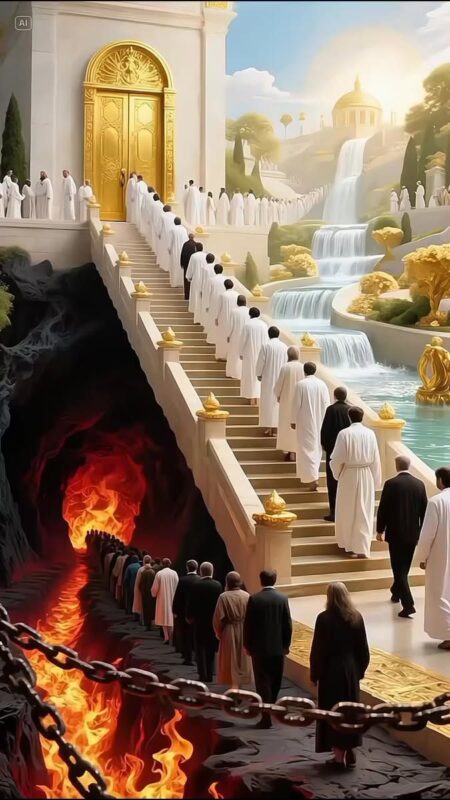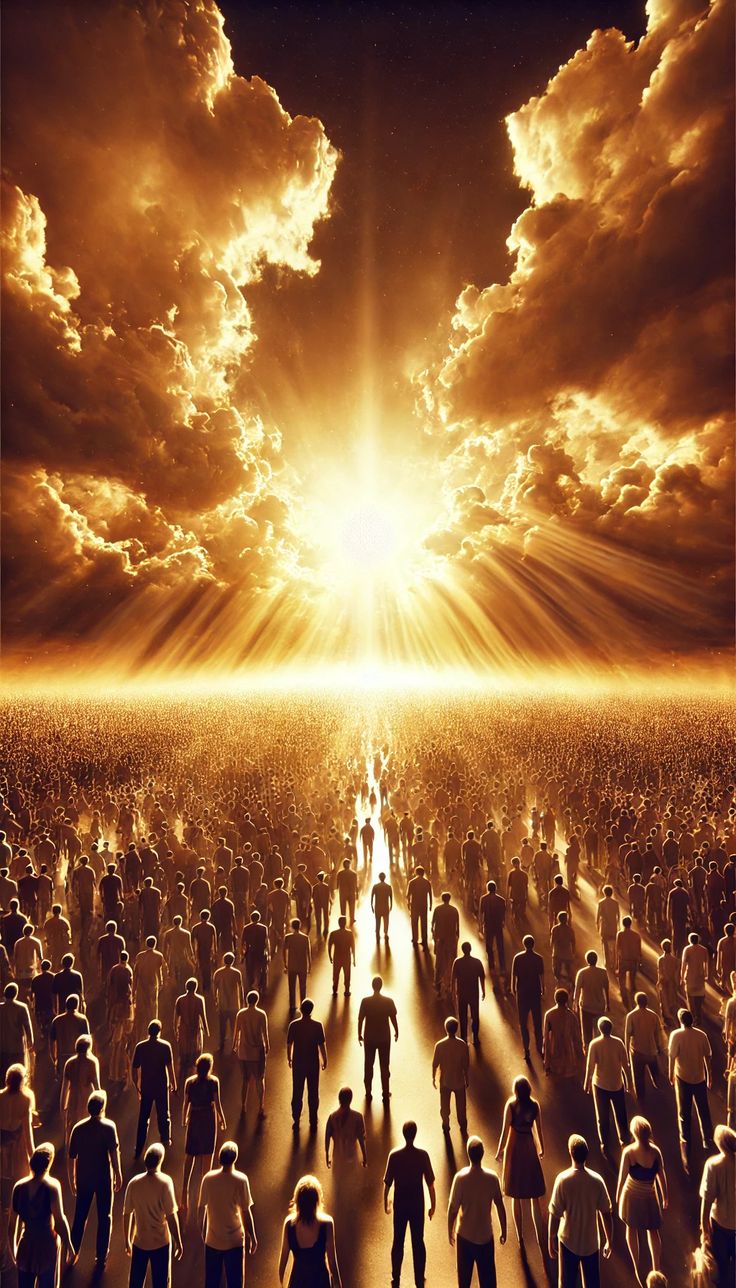Islamic Thoughts on the Last Day
Overview
One of the core tenets of Islam is the Day of Judgment, or Yawm al-Qiyamah in Arabic (Iman). It alludes to the last day, when everyone will be raised from the dead and held responsible for their actions during this lifetime before Allah (SWT). The Qur’an and the Hadiths of Prophet Muhammad (ﷺ) make frequent reference to the idea of Qiyamah, highlighting its certainty and exhorting Muslims to get ready for it by leading moral lives.
Belief in the Last Day: A Foundational Aspect of Religion
One of the six pillars of Iman (faith) in Islam is the belief in the Day of Judgment:
1. Faith in Allah
2. Having faith in His angels
3. Faith in His Writings
4. Entrustment to His Messengers
5. Faith in the Final Day
6. adherence to the Divine Decree (Qadr)
A person’s faith is inadequate if they do not believe in Qiyamah. It acts as a continual reminder that this life is fleeting and that the Hereafter is eternal.
The Day of Judgment’s events
The events of this day are described in detail in the Qur’an and Hadith:

1. The Trumpet Blowing
At Allah’s order, the angel Israfeel will blow the trumpet, bringing about the destruction of everything on earth and in the sky.
“And when the trumpet is blown, everyone on earth and in the heavens will perish, unless Allah so desires.”
Az-Zumar, Surah, 39:68
2. The Resurrection of Death
All people will be raised from the dead for judgment following a second trumpet blow.
“Then, yes, you will die after that. You shall, in fact, be raised from the dead on the Day of Resurrection.
(Al-Mu’minun Surah, 23:15-16)
3. Compilation and Responsibility
On a great plain, all of humanity will be assembled to await judgment while standing barefoot and uncircumcised. Every individual will receive their book of deeds; the wicked will receive it in their left hand, and the virtuous will receive it in their right.
“There will be an easy account for the person who is given his record in his right hand.”
(Al-Inshiqaq, Surah 84:7–8)
4. The Mizan Scale of Deeds
Every action—no matter how minor—will be evaluated using the justice scale.
“And we set the justice scales for the Day of Resurrection so that no soul will ever be treated unfairly.”
(Anbiya Surah, 21:47)
5. Sirat’s “Crossing the Bridge”
Hell (Jahannam) will have a bridge that is thinner than a hair and sharper than a blade. The only people who can safely cross it into Paradise are the pious.
The Incentives and Penalties

Jannah (Paradise):
Eternal happiness will be available to those who believed in Allah, obeyed His commands, and led moral lives.
“Yes, the righteous will be in a place of honor close to a Sovereign, Perfect in Ability, surrounded by gardens and rivers.”
Al-Qamar Surah, 54:54–55
The Hellfire Jahannam:
Those who disbelieved, shirked Allah by associating with partners, and committed evil will face consequences.
“Yes, Allah would not pardon those who disbelieved and committed transgressions, nor would He lead them down any other path than the path of Hell.”
An-Nisa Surah 4:168–169
Indications Prior to Qiyamah
Islam says that the arrival of the Day of Judgment will be preceded by a number of significant and minor indications. Among the primary indicators are:
• Dajjal’s (the false messiah) arrival
• Isa’s homecoming عليه السلام
• The appearance of Ya’juj and Ma’juj, also known as Gog and Magog
• The sun rising in the west
• Three landslides, the smoke, and the beast of the earth (Dabbah)
Believers are cautioned and reminded by these signals to return to Allah before it’s too late.
Goals and Teachings
Fear of retribution is not the only thing associated with the Day of Judgment; it is also a day of perfect fairness, divine knowledge, and ultimate justice. It instructs:
• Accountability: We are in charge of what we do.
• Hope: The tiniest act of kindness will be repaid.
• Justice: There will be no injustice and each soul will receive what it deserves.
• Preparation: Qiyamah is the day of the results; life is a test.
In conclusion
A strong incentive to live a life of taqwa (God-consciousness), humility, and devotion to others is the certainty of the Day of Judgment in Islam. It serves as a reminder that this world is fleeting and that achieving success in the Hereafter requires praising Allah and becoming ready for eternal life.
“On the Day of Resurrection, you will receive your [complete] compensation, and every soul will experience death.” Therefore, the person who is pulled away from the Fire and accepted into Paradise has fulfilled [his wish].
(Aal-e-Imran, Surah 3:185)
May Allah make us a part of the Jannahites and prepare us for that day. Ameen.


